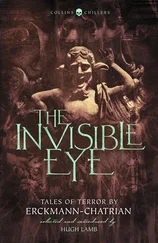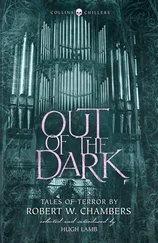She paused a moment at the foot of the slope, undecided about entering the little chill, silent building and making her plea for protection to the great battered stone image of Our Lady of Succour which stood within by the confessional box; but the stillness and the growing darkness decided her, and she went on. A spark of fire glowing through the presbytery window seemed to repel rather than attract her, and she was glad when the convolutions of the path hid it from her sight. Being new to the district, she had seen very little of Father Ruhl as yet, and somehow the penetrating knowledge and burning eyes of the pastor made her feel uncomfortable.
The soft drift, the lane of tall, motionless pines, stretched on in a quiet like death. Somewhere the sun, like a dead fire, had fallen into opalescent embers faintly luminous: they were enough only to touch the shadows with a ghastlier pallor. It was so still that the light crunch in the snow of the girl’s own footfalls trod on her heart like a desecration.
Suddenly there was something near her that had not been before. It had come like a shadow, without more sound or warning. It was here – there – behind her. She turned, in mortal panic, and saw a wolf. With a strangled cry and trembling limbs she strove to hurry on her way; and always she knew, though there was no whisper of pursuit, that the gliding shadow followed in her wake. Desperate in her terror, she stopped once more and faced it.
A wolf! – was it a wolf? O who could doubt it! Yet the wild expression in those famished eyes, so lost, so pitiful, so mingled of insatiable hunger and human need! Condemned, for its unspeakable sins, to take this form with sunset, and so howl and snuffle about the doors of men until the blessed day released it. A werewolf – not a wolf.
That terrific realisation of the truth smote the girl as with a knife out of darkness: for an instant she came near fainting. And then a low moan broke into her heart and flooded it with pity. So lost, so infinitely hopeless. And so pitiful – yes, in spite of all, so pitiful. It had sinned, beyond any sinning that her innocence knew or her experience could gauge; but she was a woman, very blest, very happy, in her store of comforts and her surety of love. She knew that it was forbidden to succour these damned and nameless outcasts, to help or sympathise with them in any way. But—
There was good store of meat in her basket, and who need ever know or tell? With shaking hands she found and threw a sop to the desolate brute – then, turning, sped upon her way.
But at home her secret sin stood up before her, and, interposing between her husband and herself, threw its shadow upon both their faces. What had she dared – what done? By her own act forfeited her birthright of innocence; by her own act placed herself in the power of the evil to which she had ministered. All that night she lay in shame and horror, and all the next day, until Stefan had come about his dinner and gone again, she moved in a dumb agony. Then, driven unendurably by the memory of his troubled, bewildered face, as twilight threatened she put on her cloak and went down to the little church in the hollow to confess her sin.
‘Mother, forgive, and save me,’ she whispered, as she passed the statue.
After ringing the bell for the confessor, she had not knelt long at the confessional box in the dim chapel, cold and empty as a waiting vault, when the chancel rail clicked, and the footsteps of Father Ruhl were heard rustling over the stones. He came, he took his seat behind the grating; and, with many sighs and falterings, Elspet avowed her guilt. And as, with bowed head, she ended, a strange sound answered her – it was like a little laugh, and yet not so much like a laugh as a snarl. With a shock as of death she raised her face. It was Father Ruhl who sat there – and yet it was not Father Ruhl. In that time of twilight his face was already changing, narrowing, becoming wolfish – the eyes rounded and the jaw slavered. She gasped, and shrunk back; and at that, barking and snapping at the grating, with a wicked look he dropped – and she heard him coming. Sheer horror lent her wings. With a scream she sprang to her feet and fled. Her cloak caught in something – there was a wrench and crash and, like a flood, oblivion overswept her.
It was the old deaf and near senile sacristan who found them lying there, the woman unhurt but insensible, the priest crushed out of life by the fall of the ancient statue, long tottering to its collapse. She recovered, for her part: for his, no one knows where he lies buried. But there were dark stories of a baying pack that night, and of an empty, bloodstained pavement when they came to seek for the body.
I
Poor Chrymelus, I remember, arose from the diversion of
a card-table, and dropped into the dwellings of darkness.
Hervey
It must be confessed that Amos Rose was considerably out of his element in the smoking-room off Portland Place. All the hour he remained there he was conscious of a vague rising nausea, due not in the least to the visible atmosphere – to which, indeed, he himself contributed languorously from a crackling spilliken of South American tobacco rolled in a maize leaf and strongly tinctured with opium – but to the almost brutal post-prandial facundity of its occupants.
Rose was patently a degenerate. Nature, in scheduling his characteristics, had pruned all superlatives. The rude armour of the flesh, under which the spiritual, like a hide-bound chrysalis, should develop secret and self-contained, was perished in his case, as it were, to a semi-opaque suit, through which his soul gazed dimly and fearfully on its monstrous arbitrary surroundings. Not the mantle of the poet, philosopher, or artist fallen upon such, can still its shiverings, or give the comfort that Nature denies.
Yet he was a little bit of each – poet, philosopher, and artist; a nerveless and self-deprecatory stalker of ideals, in the pursuit of which he would wear patent leather shoes and all the apologetic graces. The grandson of a ‘three-bottle’ JP, who had upheld the dignity of the State constitution while abusing his own in the best spirit of squirearchy; the son of a petulant dyspeptic, who alternated seizures of long moroseness with fits of abject moral helplessness, Amos found his inheritance in the reversion of a dissipated constitution, and an imagination as sensitive as an exposed nerve. Before he was thirty he was a neurasthenic so practised, as to have learned a sense of luxury in the very consciousness of his own suffering. It was a negative evolution from the instinct of self-protection – self-protection, as designed in this case, against the attacks of the unspeakable. Another evolution, only less negative, was of a certain desperate pugnacity, that derived from a sense of the inhuman injustice conveyed in the fact that temperamental debility not only debarred him from that bold and healthy expression of self that it was his nature to wish, but made him actually appear to act in contradiction to his own really sweet and sound predilections.
So he sat (in the present instance, listening and revolting) in a travesty of resignation between the stools of submission and defiance.
The neurotic youth of today renews no ante-existent type. You will look in vain for a face like Amos’s amongst the busts of the recovered past. The same weakness of outline you may point to – the sheep-like features falling to a blunt prow; the lax jaw and pinched temples – but not to that which expresses a consciousness that combative effort in a world of fruitless results is a lost desire.
Superficially, the figure in the smoking-room was that of a long, weedy young man – hairless as to his face; scalped with a fine lank fleece of neutral tint; pale-eyed, and slave to a bored and languid expression, over which he had little control, though it frequently misrepresented his mood. He was dressed scrupulously, though not obtrusively, in the mode, and was smoking a pungent cigarette with an air that seemed balanced between a genuine effort at self abstraction and a fear of giving offence by a too pronounced show of it. In this state, flying bubbles of conversation broke upon him as he sat a little apart and alone.
Читать дальше












